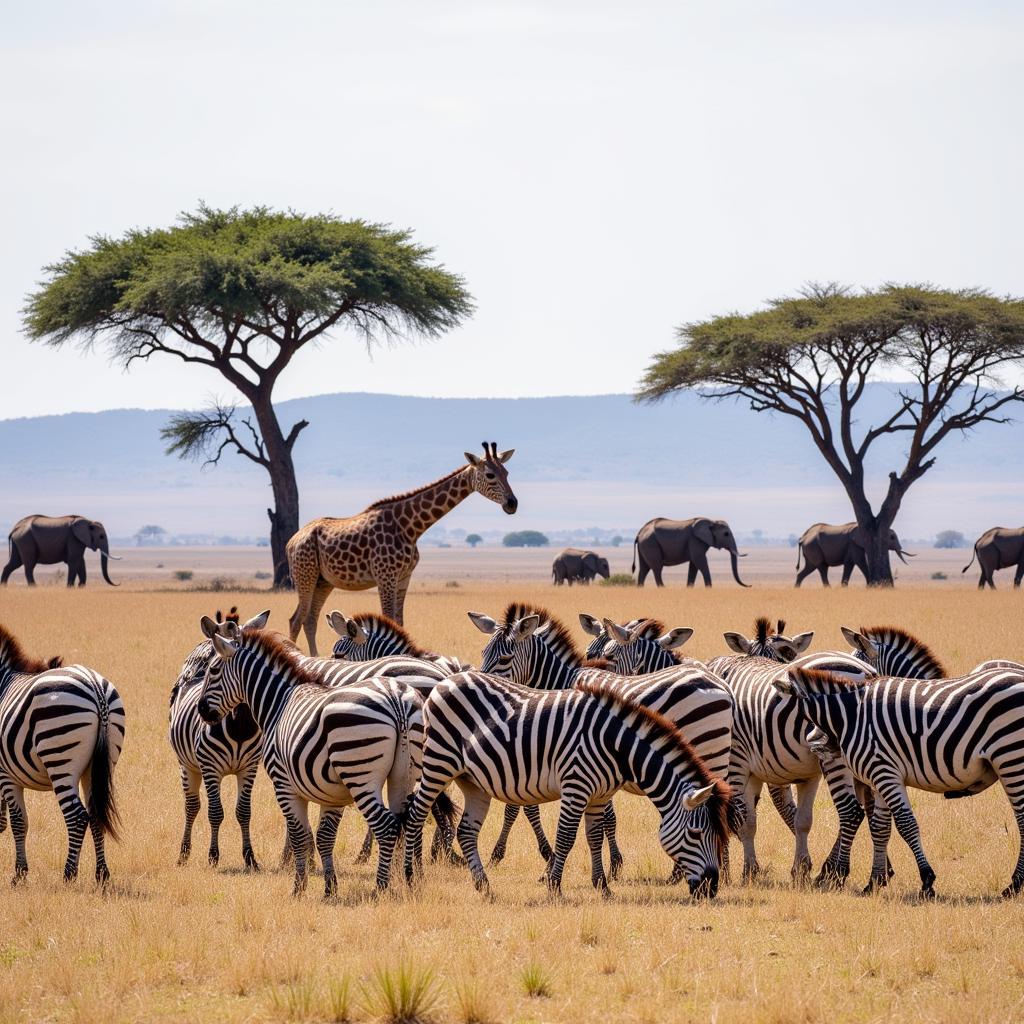The Shadowy World of African Drug Cartels
The term “African Drug Cartels” often conjures images of organized crime syndicates operating across the continent. While this picture isn’t entirely inaccurate, the reality is far more nuanced and complex. This article delves into the intricacies of drug trafficking in Africa, examining the factors that contribute to its existence and the impact it has on the continent. We’ll look beyond the headlines to understand the socio-economic forces at play and the challenges in combating this illicit trade.
Understanding the Landscape of African Drug Cartels
Africa’s role in the global drug trade has evolved significantly over the years. Initially primarily a transit point for drugs originating from South America and Asia destined for Europe, the continent has increasingly become a hub for consumption and production as well. This shift has contributed to the rise of local criminal networks, often loosely organized and opportunistic, engaging in various stages of the drug supply chain. These groups, sometimes referred to as “African drug cartels,” exploit porous borders, weak governance, and widespread corruption to facilitate their operations. They often collaborate with international criminal organizations, creating a complex web of interconnected networks that pose a significant challenge to law enforcement agencies. This collaboration extends to sharing logistical expertise, financial resources, and market access, further strengthening their reach and impact.
One key factor contributing to the growth of these networks is poverty. Limited economic opportunities and high unemployment rates create a breeding ground for recruitment, particularly among vulnerable youth. Moreover, political instability and conflict in certain regions exacerbate the problem, providing fertile ground for illicit activities to flourish.
The Socio-Economic Impact of African Drug Cartels
The consequences of drug trafficking extend far beyond the immediate victims of drug abuse. “African drug cartels” undermine the rule of law, fueling corruption and eroding public trust in institutions. Their activities contribute to money laundering, which further destabilizes economies and hinders development. The illicit profits generated by these cartels can also finance other criminal activities, including terrorism and human trafficking, creating a vicious cycle of violence and instability. Furthermore, the public health implications of drug abuse are devastating, placing a strain on already fragile healthcare systems.
African drug lord halloween special
Combating the Threat: Challenges and Strategies
Addressing the complex issue of “African drug cartels” requires a multi-faceted approach. Strengthening law enforcement agencies, improving border security, and enhancing international cooperation are crucial steps. However, equally important are efforts to address the root causes of drug trafficking, such as poverty, unemployment, and lack of education. Investing in sustainable development initiatives, creating economic opportunities, and promoting good governance are essential to breaking the cycle of crime and instability.
Are There Well-Known African Drug Lords?
While the term “African drug cartels” is often used, the structure and leadership of these networks are often less hierarchical and centralized than traditional cartel models. However, certain individuals have emerged as key players in the African drug trade. African drug lords list provides further information on this topic. It’s important to understand the specific context and dynamics of each case rather than relying on generalizations.
Who is a Famous African Drug Lord?
Identifying specific individuals can be challenging due to the clandestine nature of these operations. However, African drug lord name offers some insights into known figures associated with drug trafficking in Africa.
“The key is to dismantle the networks, not just focus on individual figures,” says Dr. Abasi Okon, a leading expert on transnational crime in Africa. “Focusing solely on individual kingpins often overlooks the complex web of facilitators, financiers, and corrupt officials that enable these operations.”
Conclusion
The issue of “African drug cartels” is a complex one, demanding a comprehensive and sustained effort from governments, international organizations, and civil society. By understanding the underlying factors that contribute to the problem and implementing effective strategies, we can work towards a future where Africa is free from the grip of drug trafficking. Tackling this challenge is not merely a law enforcement issue; it is a crucial step towards building a more secure, stable, and prosperous future for the continent.
“Combating drug trafficking requires collaborative efforts across borders and a focus on disrupting the entire supply chain,” adds Dr. Fatima Hassan, a security analyst specializing in African affairs. “We must also prioritize community-based programs that empower individuals and address the root causes of vulnerability.”
FAQ
- What are the main drugs trafficked through Africa?
- How do “African drug cartels” impact local communities?
- What are the challenges in prosecuting drug traffickers in Africa?
- What role do international organizations play in combating drug trafficking in Africa?
- What are some successful strategies for reducing drug demand in African countries?
Need help? Contact us 24/7: Phone: +255768904061, Email: [email protected] or visit us at Mbarali DC Mawindi, Kangaga, Tanzania.


